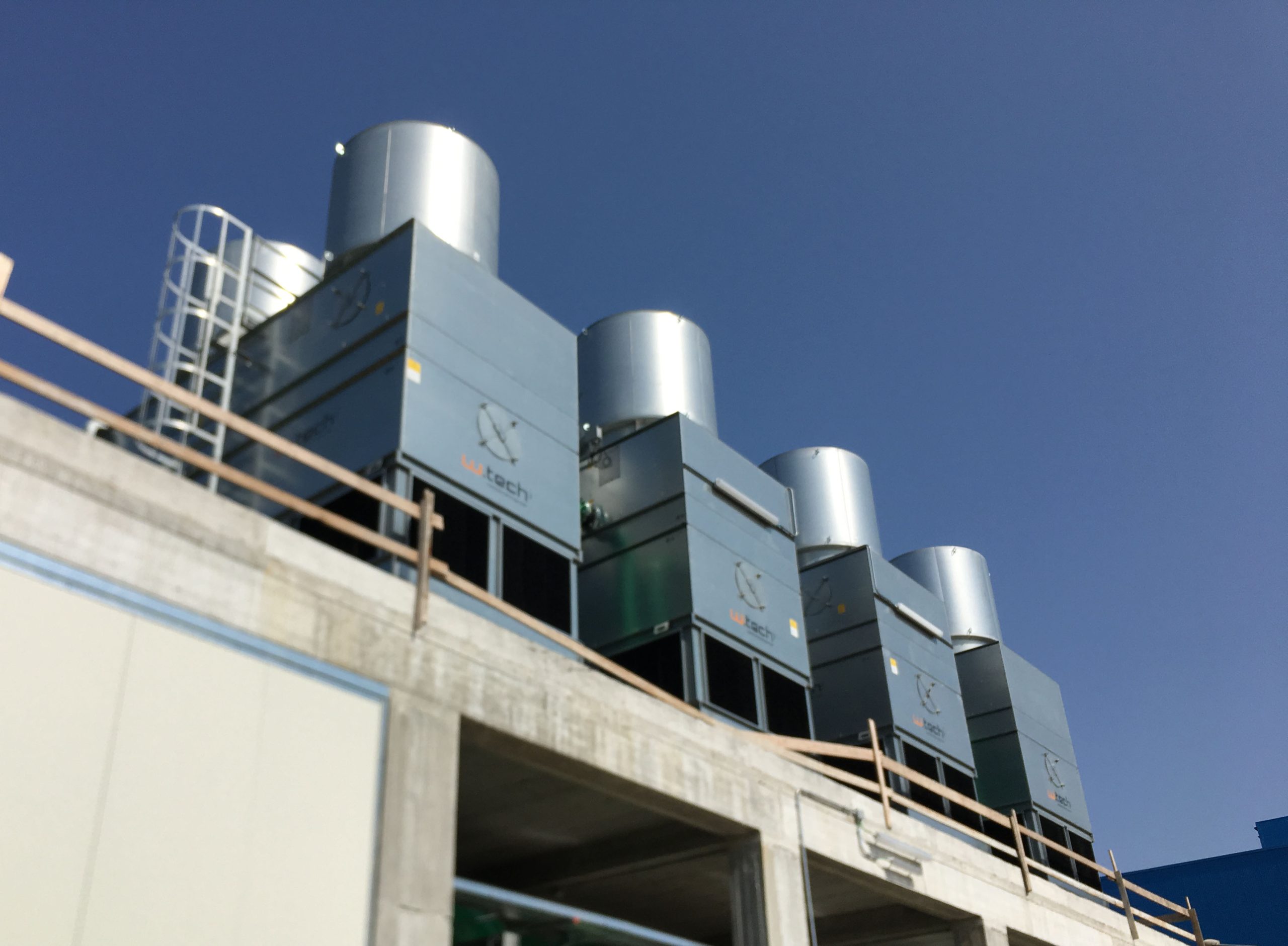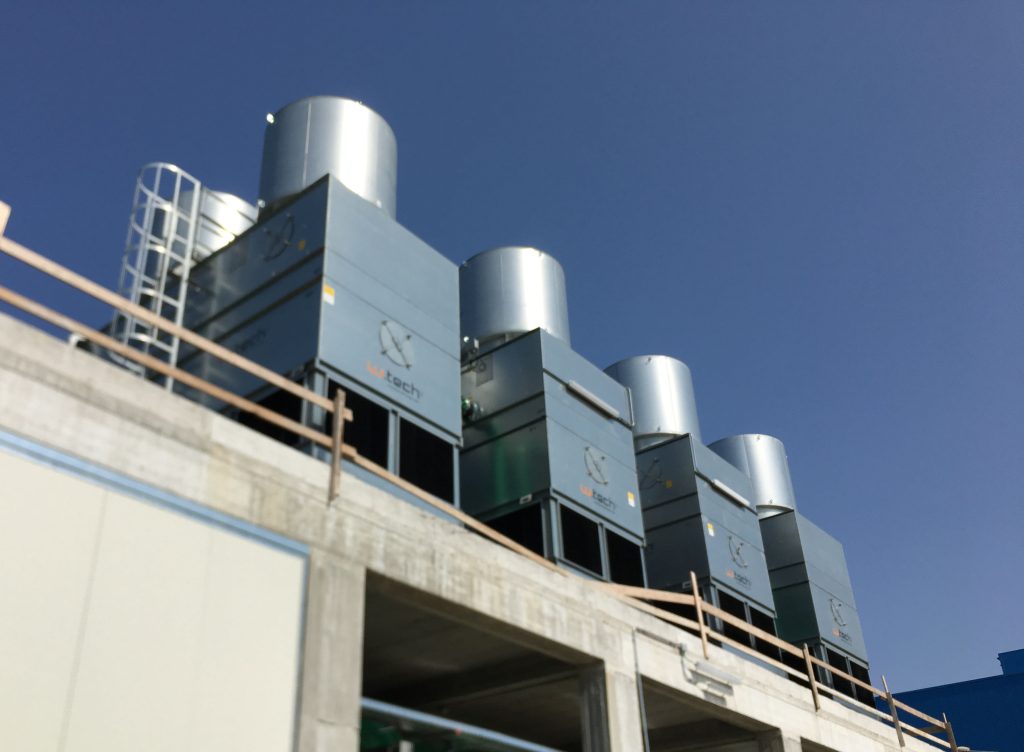Evaporative cooling is a suitable technology for many industries that require temperature reduction in production processes. Some of the industries that can benefit from evaporative cooling include:
Food and beverage industry: evaporative cooling can be used to reduce the temperature of food processing environments, reduce the temperature of beverage production machines and systems, and for food preservation.
Chemical industry: evaporative cooling technology can be used in chemical processes where temperature reduction is required, such as the production of fertilizers, plastics, paints and solvents.
Pharmaceutical industry: evaporative cooling can be used in drug production, such as during the freeze-drying process and to reduce the temperature of production environments.
Textile industry: evaporative cooling can be used in the production of textiles, such as cotton and wool, to reduce the temperature and humidity of processing environments.
Automotive industry: evaporative cooling can be used to reduce the temperature of automobile production facilities, reduce the temperature of operators’ work environments, and to cool painting systems.
These are just a few examples of industries that can benefit from evaporative cooling. In general, any manufacturing process that requires temperature control can benefit from this technology.
Benefits of evaporative cooling for industry
- Increased energy efficiency compared with other cooling systems
- Reduced energy and maintenance costs
- Increased equipment and machinery life due to evaporative cooling
- Improved air quality within the industrial environment
- Reduced environmental impact and CO2 emissions
- Lower plant cost compared to conventional systems
- Energy efficiency: evaporative cooling requires less energy than other air conditioning systems, such as traditional air conditioning, because it uses outside air to cool the room instead of generating cold air from scratch.
- Cost reduction: evaporative cooling requires less maintenance than other air conditioning systems, such as traditional air conditioning, and has a longer service life.
- Longer system life: in general, evaporative refrigeration systems tend to have a longer life span than air refrigeration systems. This is because the components of such systems are subject to less mechanical stress, as they operate at lower temperatures. In particular, evaporative refrigeration systems require a lower condensing temperature, which increases volumetric refrigeration output and requires less expensive components such as a smaller compressor, smaller motor and condenser, and fewer fans. In addition, these systems are also lighter and take up less space than their air-cooled counterparts, making them easier and more convenient to install.
- Improved indoor air quality: evaporative cooling uses water to cool the air, which helps maintain proper humidity levels inside industrial buildings. This is especially important in industrial environments where dry air can irritate the eyes, skin and mucous membranes. In addition, evaporative cooling can reduce the presence of dust and other contaminants in the air, improving indoor air quality.
- Reduced greenhouse gas emissions: evaporative cooling emits fewer greenhouse gases than conventional cooling systems. This is because evaporative cooling uses water as a refrigerant, which does not emit greenhouse gases, such as the chemical refrigerant used in traditional cooling systems. This makes evaporative cooling a more sustainable choice for companies seeking to reduce their emissions.
- Less starting investment than those using air-cooled condensing, but offer similar performance. In addition, decreasing the condensing temperature increases the volumetric refrigeration output, which means that less expensive components are needed to produce the same cooling effect. This includes a smaller compressor, smaller electric drive motor, smaller condenser, and fewer fans, reducing noise production and soundproofing cost. In addition, these units are 4 to 5 times more compact and lightweight than air condensers, making them cheaper to support and place. Finally, these systems require lower peak power demand, leading to lower investment in CHP plants for power generation and corresponding distribution lines.
Summary of the benefits of evaporative cooling for industry
Evaporative cooling is the best choice for your industry, enabling excellent performance and very low environmental impact. You can make your production system efficient and sustainable at the same time, with a moderate initial investment compared to other industrial cooling solutions.
Contact us for a consultation at info@w-tech.it









